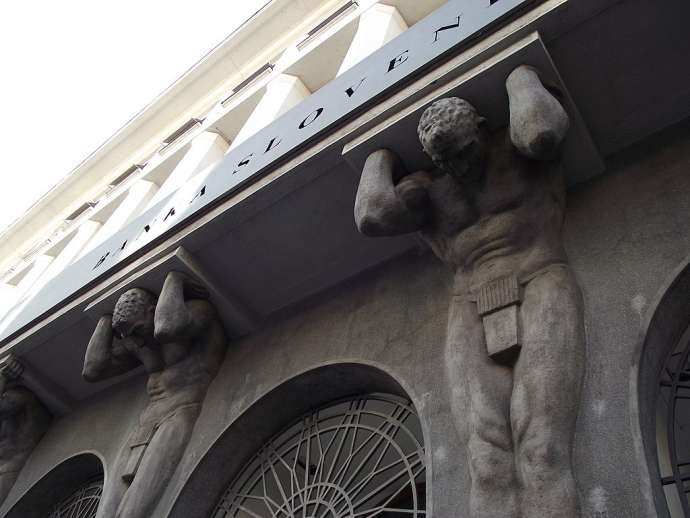STA, 10 March 2020 - The Constitutional Court has stayed the implementation of an act providing easier access to recourse for roughly 100,000 investors who lost their investments during the banking sector bailout of 2013. The court announced this on Tuesday, two months after the central bank challenged the legislation.
Banka Slovenije said in January that "the most controversial parts of the law affect monetary financing and the financial independence of the central bank".
The act makes Banka Slovenije financially liable for lawsuits from wiped-out investors and mandates it to set aside reserves for damage payments that most estimates suggest could approach a billion euro.
While the legislation is stayed, limitation periods have also been suspended for damage claims as set down in the banking act and for the filing of lawsuits, the Constitutional Court said.
Moreover, Banka Slovenije and the Maribor District Court must remove from their websites posts required by the law on judicial protection procedure for former holders of eligible liabilities of banks.
The data room manager, the Maribor District Court and the Securities Market Agency must suspend all data processing except data storage and must also prevent access to the data.
The Constitutional Court also ordered suspension of all civil law procedures filed under this law and said in the press release that the decision to stay the legislation was unanimous and that the case was a priority.
The court said it decided to stay the act in its entirety because its provisions were very closely interlinked. Constitutional Court judges believe there could be a number of hard-to-mitigate consequences.
Among other things the documents in the virtual reading room could be confidential or contain business secrets, whereas the act allows access to a potentially large group of people.
Some hard-to-mitigate consequences could be related to efforts and expenses of clients and with organisational issues of the Maribor District Court, the only competent court for these cases.
Meanwhile, the Finance Ministry said that it was still examining the decision of the Constitutional Court, while the central bank reiterated its case in a statement.
The Association of Small Shareholders again urged the government and the National Assembly to reconsider a compensation scheme or out-of-court settlements. The compensations scheme would resolve immediately resolve the problems of most small shareholders.
The law on judicial protection procedure for former holders of eligible liabilities of banks was passed in late-2019 after the Constitutional Court said in 2016 that a provision of the law on banking did not give the subordinated creditors and shareholders effective access to recourse.
The 2013 bail-in was managed by Banka Slovenije in conjunction with the government, the European Commission and the European Central Bank (ECB). It resulted in the erasure of roughly EUR 600 million of subordinated bank bonds and shares in several banks held by roughly 100,000 shareholders, which had by then been almost worthless.






